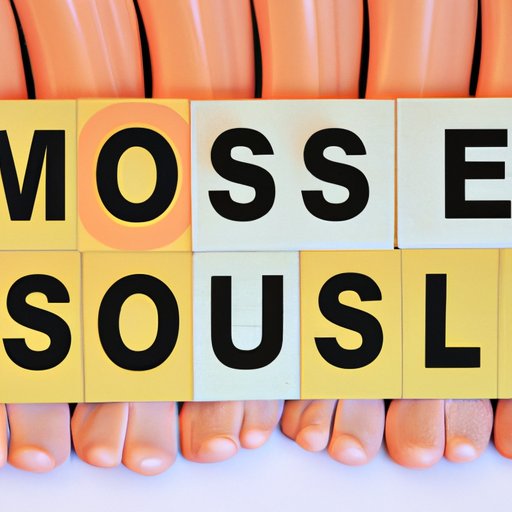Introduction
Exercise and fitness are great for our physical and mental health, but they can also leave us with sore muscles. Whether it’s a result of a new workout routine or pushing ourselves too hard, muscle soreness is a common side effect of exercise. However, there are ways to alleviate it quickly, so it does not hinder our daily activities. In this article, we will explore different methods and remedies to relieve muscle soreness quickly, leaving you feeling refreshed and ready to take on the next workout.
The Science of Sore Muscles
Have you ever wondered why your muscles ache after a strenuous workout? It’s because of microscopic tears in muscle fibers that occur during exercise. These tears lead to inflammation, resulting in soreness. This soreness can be experienced in the form of acute muscle soreness, which is felt immediately after exercise, or delayed onset muscle soreness (DOMS), which typically appears 24 to 72 hours after exercise.
Fast-Acting Remedies
There are various methods to relieve muscle soreness quickly, and one of the most popular methods is foam rolling. Foam rollers help to improve blood circulation, which enhances the delivery of nutrients to the muscle tissues. You can use a foam roller to target specific areas of the body that need attention. For example, if you have sore legs, you can use a foam roller to massage your quadriceps, hamstrings, and calves to relieve the soreness.
Stretching is another effective way to reduce muscle soreness. When you stretch, you increase the blood flow to the muscles, which helps to reduce inflammation. Targeted stretching can also improve flexibility and range of motion. Try stretching the muscle groups that are sore for best results.
Massage is another option that can help relieve sore muscles. Massaging the affected area helps to increase blood flow, which can speed up the healing process. You can visit a professional masseuse or use a foam roller to massage the sore muscles yourself.
Topical Treatments
Heat therapy can also alleviate muscle soreness. Applying heat to sore muscles increases blood flow, which helps to deliver much-needed oxygen and nutrients to the muscles. You can use a heating pad, a warm towel, or take a warm bath to apply heat to the affected area.
Ice therapy is another effective way to reduce inflammation and relieve sore muscles. Applying ice to sore muscles helps to reduce swelling, numb the pain, and increase blood flow. You can use a cold pack, ice cubes wrapped in a towel, or even a bag of frozen peas to apply cold to the affected area. Remember to never apply ice directly to the skin.
Preventing Future Soreness
Hydration is crucial for preventing muscle soreness since it helps your body flush out toxins that can lead to inflammation. Make sure to drink plenty of water before, during, and after a workout. Proper hydration can also help prevent cramping and improve athletic performance.
Proper technique and pacing can also help prevent muscle soreness. It’s essential to warm up properly before exercising to ensure your muscles are ready for the activity. Additionally, it’s crucial not to overexert yourself too quickly, particularly if you’re new to exercise or trying a new workout routine.
Rest and recovery time are also important for preventing muscle soreness. Taking a break can give your muscles time to heal and rebuild themselves. Make sure to get enough sleep, eat a healthy diet, and practice self-care. Listen to your body and don’t push yourself too hard.
Personal Stories/Testimonials
Many people have successfully alleviated muscle soreness quickly using the tips and remedies outlined above. Some have found foam rolling and stretching to be the most effective, while others have noticed significant relief after using heat or ice therapy. Regardless of the method, incorporating recovery strategies into your routine can help reduce muscle soreness and enhance athletic performance.
Conclusion
In conclusion, exercise and fitness are essential for maintaining a healthy lifestyle. However, muscle soreness can hinder our daily activities and affect our athletic performance. By incorporating the remedies and tips outlined in this article, you can alleviate muscle soreness quickly and continue to enjoy the benefits of physical activity. Remember to listen to your body, prevent future soreness, and take the necessary steps to recover.
